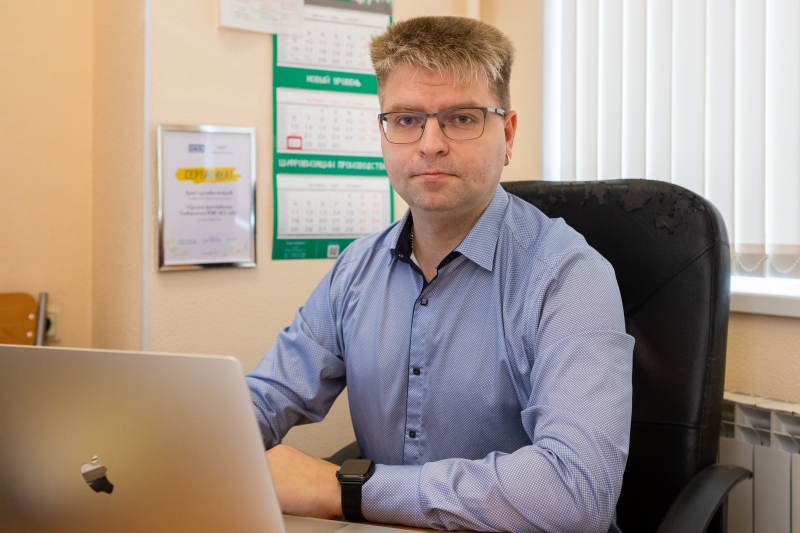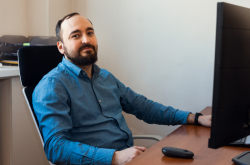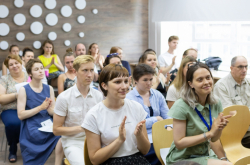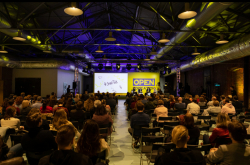How did you start your career as a lecturer?
After graduating from vocational school, I enrolled directly into my second year of studies at ITMO University. Having graduated with honors, I continued my education with a PhD degree. I defended my thesis and started working as a research assistant at one of the university departments.
As any PhD student, I started teaching during my practical training, where I worked with my thesis supervisor: he held lectures and I oversaw practical training for the Instrumentation Engineering Technologies course. After that, I started teaching classes in the field of industrial technologies.
In a couple of years, I became an associate professor. And when the new Faculty of Control Systems and Robotics was formed at ITMO, its dean Anton Pyrkin suggested I join him as his deputy.
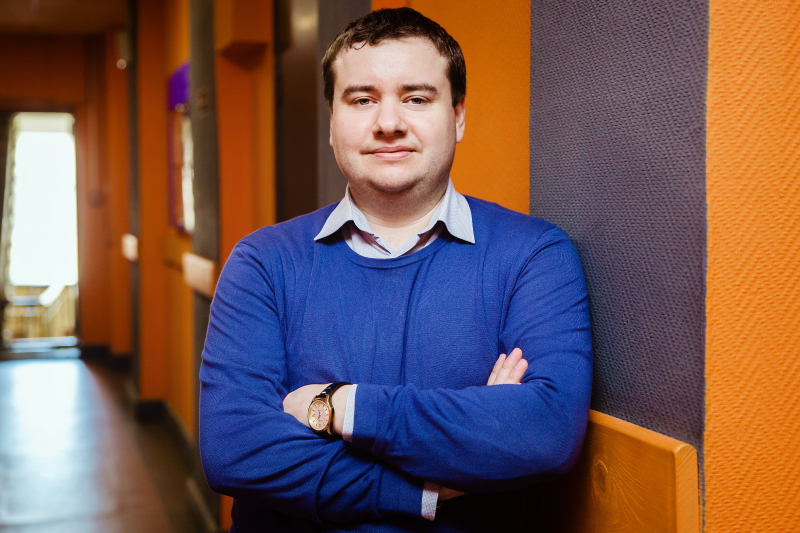
Anton Pyrkin. Photo by ITMO.NEWS
What was your PhD thesis about?
I analyzed the effect of surface microgeometry on various functional properties of devices and their parts. For instance, I studied frictional couples and as a result suggested a method of technologically increasing their reliability and durability.
The method is based on an interesting approach connected to non-parametric evaluation of surface finish. Our students still develop these ideas in their theses.
Are you planning to get a DSc degree?
I have quite a lot of management work, I supervise many graduating students. I want to defend a DSc thesis and I have ideas on it, but so far I am short on time. But I am working on it.
What kind of work do you prefer more: management or communicating with students and teaching?
I don’t really divide the two because you will inevitably have to do some managing, regardless of whether you head an educational program or a research project. I think I am good at both teaching and management. It’s somewhat of a synthesis and I am glad to have the opportunity to grow in many fields while working at the university.
In your experience, what is the best way to engage students in a subject?
Lecturers need to understand their students and what they live by, because generations change, new students come in with new interests and it’s important that you speak the same language. I always try to use up-to-date means of communication – group chats on social media, messengers, etc. Students like it when they can get answers to their questions quickly, it erases the classical barriers dividing students from lecturers.
Another important aspect is to not only explain the theory but also demonstrate how it can be used in practice. Our faculty has many industrial partners – companies, where students can get their practical training or undergo an internship.
One such partner is Schneider Electric, they have one of their production sites in Gatchina. There, students get their practical training by participating in projects on implementing digital manufacturing technologies. A group of staff members from the company is now studying in one of our Master’s programs, they will defend their theses this year.
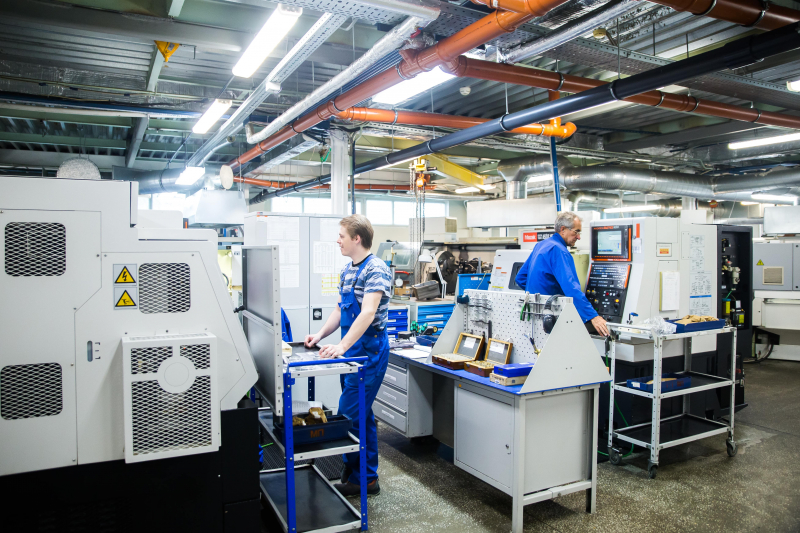
At Diakont. Photo by ITMO.NEWS
Another partner is Diakont – the university closely collaborates with it in the field of both research and education. Within our faculty, there is the Institute of Intelligent Industrial Technologies led by Mikhail Fedosovskii, head of Diakont. Together with the company, we’ve developed many R&D projects, as well as a corporate Master’s program.
One other partner is Techpribor PJSC, the oldest aviation-instrument-making enterprise in Russia. We’ve been collaborating for several decades and many of our graduates and PhD students work there.
Moreover, we collaborate with the Bee Pitron company that was one of the first in Russia to start equipping Russian production sites with new tech and implementing contemporary software, as well as the Etalon science and technology center that conducts research in the field of construction materials, develops digital measuring complexes, and implements non-destructive control technologies. We have many partners, who are all happy to work with our students and involve them in solving real-life cases.
When students get their first jobs or practical training, they are often told to forget everything they were taught at university. How do you think we can avoid that and maintain a balance between theory and practice?
Yes, I think this rumour has been circulating since Soviet times, but I don’t agree with it. I explain to my students that if they focus on practical skills only and don’t look further, they won’t be able to grow. You have to be able to communicate well and understand certain aspects better than your peers. Then, you will stand out.
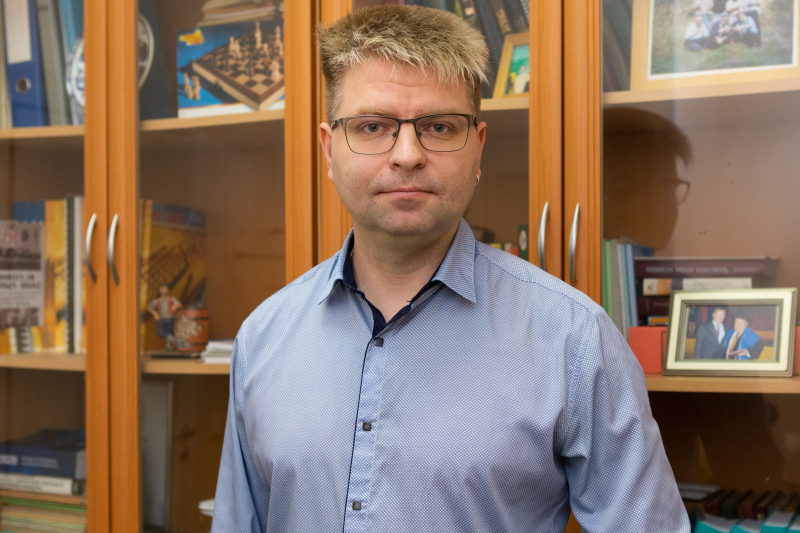
"I didn’t expect to win in the contest, I simply held lectures and worked with my students. It’s wonderful to know that this is valued," Yury Andreev. Photo by Dmitry Grigoriev, ITMO.NEWS
What do you do in your free time?
I spend 10 to 12 hours at work, I come here early in the morning and leave late in the evening. I have a two-year-old daughter at home and I do my best to spend all of my free time with her.
Apart from that, in the winter my wife and I usually enjoy snowboarding, and in the summer, between entrance exams, I spend my days in nature or at our dacha.
How do you maintain a work-life balance?
I like my job and I love being here. I have many tasks and many students that help me constantly work on my skills. The faculty and the School set us ambitious objectives, which are interesting to work on and thus every minute is accounted for.
My wife is also an ITMO graduate and she knows what being a lecturer really entails, so we have managed to keep the balance so far. But it’s important to remind yourself that there are other areas apart from work that require your attention and emotional input.
Some of the EduStars participants got involved in the competition to get feedback from their colleagues. Was that your intention as well?
The best feedback, in my opinion, comes from students. It’s extremely valuable when at the end of a course they come by to thank me for it and say that they’ve applied the knowledge in their work.
